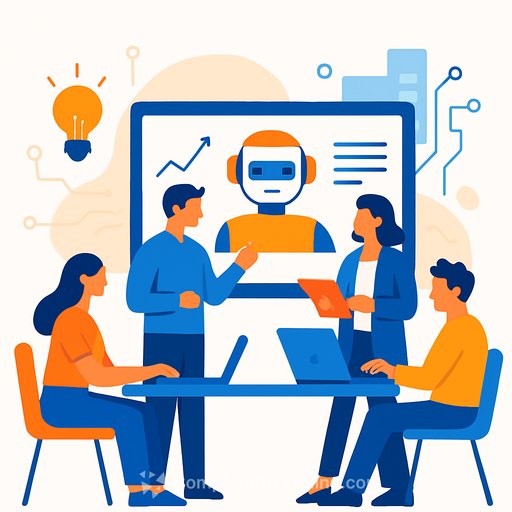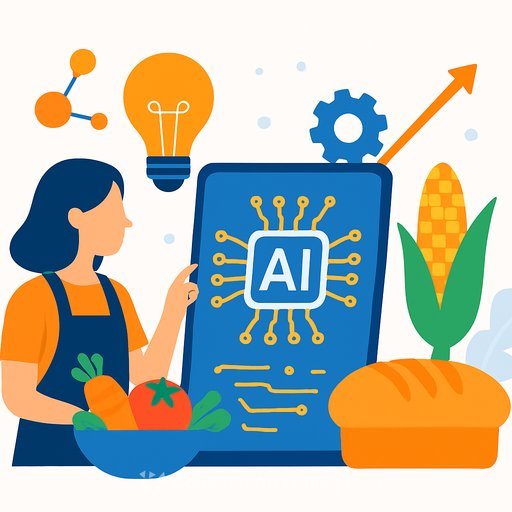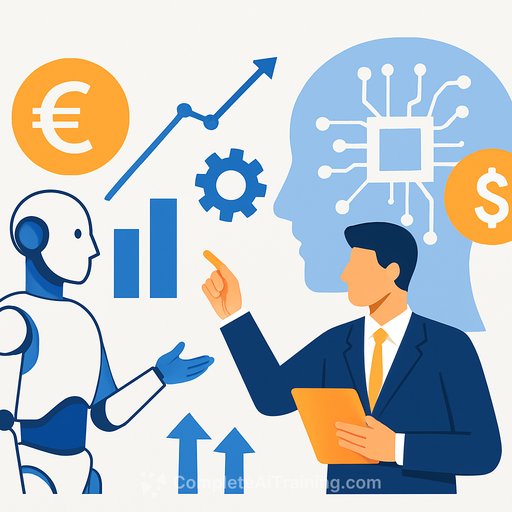The Rise of AI-First Companies
Companies are shifting to an “AI-first” mindset, embedding artificial intelligence into every part of their operations. This approach goes beyond simple automation or chatbots—it redefines how businesses make decisions, innovate, and maintain a competitive edge. Leaders from major firms like Microsoft emphasize that success depends as much on changing company culture as on technology itself.
Satya Nadella of Microsoft highlights how AI agents are transforming computing interfaces by integrating persistent memory, advanced tool use, and precise permissions. These developments enable higher productivity and align with industry trends where AI moves from experimental projects to scalable, sector-wide infrastructures.
Reimagining Core Processes with AI
One essential strategy is to rethink workflows completely. According to a PwC report on AI predictions for 2025, integrating AI into core business processes is key to boosting efficiency and driving revenue growth.
AI-first companies use predictive analytics not just for forecasting but for real-time decisions, enabling quick pivots in volatile markets. However, a McKinsey survey shows that while nearly all organizations invest in AI, only a small percentage have reached true maturity. Building AI-native teams—where employees work alongside AI instead of fearing replacement—closes this gap.
Balancing Innovation and Ethical Governance
Ethics must be a priority in AI adoption. Experts from MIT Sloan Management Review emphasize the need for risk management and data ethics to avoid issues like algorithmic bias. Leaders should establish governance frameworks early, ensuring AI strategies comply with regulations and respect societal values.
Voices like Dr. Khulood Almani highlight the importance of focusing on high-impact AI projects that deliver strong ROI. Responsible AI use is especially critical in trust-sensitive industries such as finance and healthcare.
Scaling AI for Competitive Edge
To scale AI effectively, companies are adopting “agentic AI”—autonomous systems that perform complex tasks with minimal human oversight. A BCG report notes that lean teams leveraging these tools can generate billions in revenue, demonstrating the efficiency of this approach.
Startups are leading the way by using AI across product development, customer engagement, and more. Investment trends predict a focus on integrating AI with technologies like IoT and blockchain, creating hybrid systems that amplify operational efficiency.
Overcoming Adoption Challenges
Despite AI’s potential, many companies face adoption hurdles. McKinsey’s research points to skill gaps as a major barrier, requiring new training programs to equip employees for AI-driven work environments. Cultivating a culture of continuous learning is essential for success.
Recent insights suggest that AI-first companies are those that integrate AI seamlessly with existing workflows and track performance through clear metrics such as revenue growth and employee productivity.
Looking Ahead: The Path to AGI and Beyond
Looking forward to milestones like Artificial General Intelligence (AGI) predicted around 2029, companies like Google DeepMind are shifting focus from scaling current AI to exploring new paradigms. This mindset is vital for long-term leadership.
Building an AI-first company today requires vision, agility, and a strong partnership between humans and AI. By adopting these strategies, product development teams can position their businesses for sustained growth as AI becomes central to innovation.
For product developers interested in expanding their AI skills and applying these strategies practically, Complete AI Training offers a range of up-to-date courses designed to build hands-on expertise.
Your membership also unlocks:






